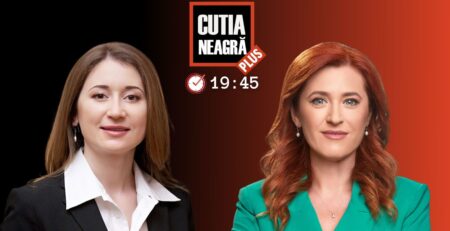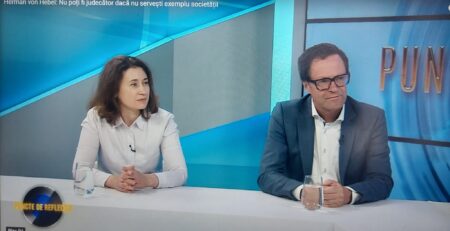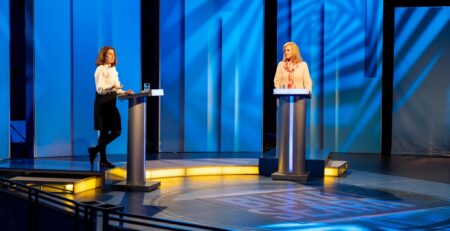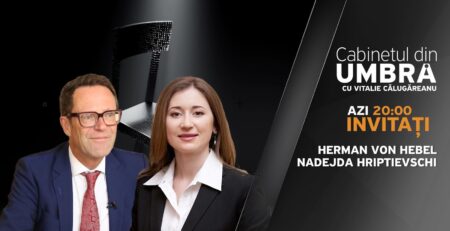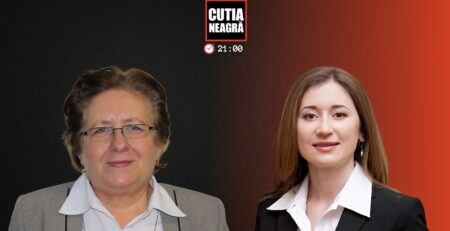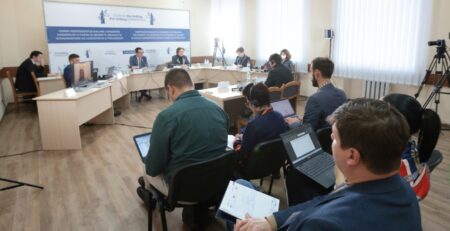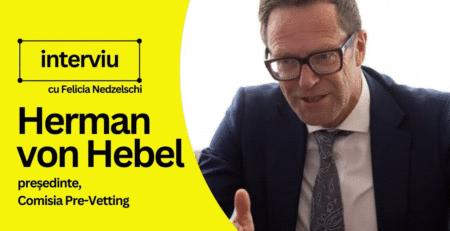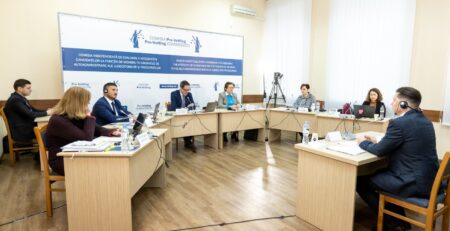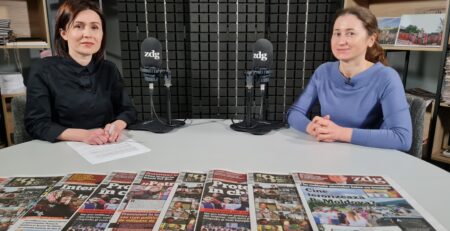Herman von Hebel, the Chairperson of the Pre-Vetting Commission, which is going to evaluate the integrity of candidates to the Superior Council of Magistracy and Superior Council of Prosecutors, stated in an interview for ZdG that evaluation of integrity means full transparency of candidates, who will have to produce evidence should there be any doubt about their wealth and assets. Thus, candidates will be the ones to prove their full integrity, financial and ethical, said the Chairperson of the Pre-Vetting Commission.
– Why did you decide to become part of this Pre-Vetting Commission here, in the Republic of Moldova?
– As I mentioned during our first press conference, I have worked all my life in the field of human rights, international criminal law, rule of law. I always wanted to contribute to a system where the rule of law is strong, at both international and national levels, where judges can act in an independent and impartial manner, being entirely trusted by the population. Such purposes get me mobilized. Being a judge myself, I tried to be impartial and independent, but also to work in an efficient and transparent way. Therefore, when I was offered this position I said “Yes”, even though I was aware of the challenges we were going to face. However, it is also an opportunity, because as a member of this Commission I can help strengthen the rule of law and the justice system here, in Moldova. This is a big reform in the field of justice, with huge challenges ahead. Of course, I heard about this from people with whom I talked here. There is a lot of public pressure. Nevertheless, we are ready.
– What do you know about the justice system of Moldova and why do you believe Moldova needs such an exercise?
– I am not an expert when it comes to Moldova’s justice system since I am a foreigner, similarly to other two international members of the Commission. What I like about the Commission is that it consists of three Moldovan experts and three international experts. This leads to sort of a chemistry among us, which makes our work so interesting. We have the national context represented by the Moldovan members of the Commission, and from international members we have experience from Strasbourg, from the International Criminal Court, as well as knowledge of the way disciplinary systems work around the world. We bring all of this together.
There’s still a lot for me to learn about the functioning of the justice system in Moldova. However, of course, I have prepared myself with respect to the situation here and the challenges it poses, and what the government’s vision is for reforming the justice system. I also worked in other countries: Ukraine, Georgia, Indonesia, East Timor, many African countries. I noticed that justice systems around the world are often missing more functionality. Moldova is not an exception in this respect; therefore, I am happy to contribute to this process.
– How difficult will it be to check the integrity of over 100 people – candidates and their family members? What are the challenges and the risks?
– Obviously, there are many challenges. The Law sets clear deadlines for this process. Based on the experience of other countries that went through a similar exercise, we see that it usually takes a long time. I had worked for a year in Albania; my work wasn’t directly related to this process, but I saw that it takes a long time. Therefore, I believe that one of the big challenges will be completing our work on this tight schedule. At the same time, we will have to work with a significant amount of information that we will receive from candidates and from other Moldovan authorities, maybe even from other countries. We will have to gather all this information, analyze it, study it and this is a huge job, to be honest. Still, it’s a job that has to be done.
It is also important to remember that such an exercise like pre-vetting or vetting can be performed just once and, respectively, it has to be done right. It cannot be half-right; it has to be one hundred percent right. This principle mobilizes us. Quality is much more important than the speed of this process. However, we have to hurry as much as possible, that’s why our work is broken down into stages, into groups, so that we would have the capacity to study thoroughly all the information we will receive about candidates and to perform an appropriate evaluation within the terms set by the Law.
– Some people criticized both the pre-vetting and the extraordinary evaluation of all judges and prosecutors, which was also announced to take place in Moldova. The opposition and some representatives of the justice system say that this process may be politicized and it may affect the independence of justice and separation of powers.
– I have never seen a reform that was not criticized. Every reform raises discussions; it is inevitable. However, I would like to highlight that the Law, passed by the Parliament and setting our responsibilities, provides that this Commission shall operate in an independent and impartial manner, separately from the Parliament, from the Ministry of Justice, separately from the diplomatic mission that delegated us. This is our duty and I saw that all six members really want to do it.
We will not influence the independent work of the judges. I won’t peek at the way a judge decides on particular cases. This is not part of our mandate. We are not a new authority that would monitor judicial decisions. However, we will monitor the way judges work. We will not follow individual cases examined by the judges, but rather the way judges and prosecutors make decisions. We will also check out what media wrote about them. We will see if they behaved ethically.
Being myself a judge in my country, when I talk to my fellow judges about an individual case, we often have different opinions about how certain pieces of evidence should qualify in specific criminal cases. This makes sense. There is a classical joke: five lawyers have six opinions. It is the same with judges. It is not our (editor’s note: Pre-Vetting Commission) role to doubt about individual decisions issued by judges on specific cases. Hence, we will not touch independence and impartiality of justice. We will rather monitor the lifestyle, the pressure that may have been put on judges and prosecutors. At the same time, we will stay away from their cases. This is also the practice I saw in other countries. We will strive to find balance in order not to disrupt the functionality of the justice system.
— What will the Commission focus on? What evidence will convince you that a candidate has integrity and honesty?
— I think it is very important for candidates to be transparent when they fill in the asset and interest declaration, as well as the ethics questionnaire, to fill them in entirely, thoroughly and accurately. The candidates are aware that we will also access other sources of information, we will ask for data from banks in the country and abroad, from customs and tax authorities, etc. We will be very through in our assessment of the information we obtain. We will ask candidates for clarifications every time questions or uncertainties – the so-called ‘red flags’ – arise. We will also talk at the hearings. Candidates’ demeanor during the hearing will also have an impact on their evaluation outcomes.
We must draw a clear line. These are not criminal proceedings, so we did not set out to find someone guilty. It is not a question of whether someone committed a crime, beyond any doubt. The gist of this endeavor is that when serious doubts arise, the onus will be on the candidates to provide evidence. It will not be us who will have to prove that something is wrong, but they – the candidates, will have to prove their full integrity in financial and ethical terms. This is the big peculiarity of how we operate. Therefore, we recommend all candidates to be fully transparent and honest when they appear before the commission.
— Some public people in the Republic of Moldova have, for instance, houses registered under the names of their relatives. The media has written about many such cases. What would you do if you came across a situation like this and the candidate told you “That is my mother’s house. I only live there”?
— If and when that’ll be the case, we will inquire about it and we’ll consider the answers. In the particular situation that you described, we would try to find out whether a mortgage or loan was taken, what sources the candidate had, when was the loan taken and what was the repayment period, what the salary of the judge and his/her partner or other family members was? We would try to figure out if there is any unexplained wealth. If one has a salary of 100 euros a month, for example, but buys a three-million-euro villa, it makes you think that something isn’t right. We will make deductions and try to figure out if we were provided all the information.
However, it is, of course, possible for a judge to have a very wealthy partner. It can be the case. Therefore, we will have to examine the facts on a case-by-case basis, as each situation is unique. We will look at information about salary, other income sources. We will look into loans and where they were taken from, we’ll consider the situation of family members. Though we will focus on the candidates, we will also look at their family members’ assets, and they will have to make that information public.
— What about wealth and assets abroad? Will you communicate with authorities form other countries?
— Yes, we intend to enhance such communication. I must say it’s not always easy. There have been similar commissions in other countries. Thought it won’t be easy to get information from abroad, it certainly won’t be impossible. We will seek the help of embassies to explore and find opportunities. There are examples set by other commissions in other countries that managed to find the wealth that candidates had abroad.
But the mere fact that a candidate would not submit all the information asked for, and us finding out they had assets abroad that they kept away from us, would have a huge impact on the level of trust we would be able to have in their declarations. This would play in important role in our consideration of the candidate.
— Can the candidates appeal against the outcome of the evaluation? Do you think that this could lead to delays in this process? Will it make it difficult for you if more candidates challenge the decisions of the commission in court?
— We do expect this to happen. As an attorney and judge, I support the idea of being able to take a case to court. I myself am a judge in a court of appeal. Therefore, as commission members, we have to be very transparent in the way we formulate our conclusions, because one has the possibility to appeal against our decisions. Candidates can go all the way to the Supreme Court to call in question our decisions. Therefore, our obligation is to make well-argued, substantiated decisions, in which we would state very clearly: this is the information we analyzed, these are the questions we asked, these are the candidate’s answers, and these are the conclusions we have drawn. Our decisions have to be well-founded and substantiated.
It is neither in our interest, nor in the interest of candidates to issue commission decisions that would end up overturned by the Supreme Court. It is in everyone’s interest to ensure that our analysis is very thorough and very well substantiated. The candidates certainly have the right to appeal. This is a fundamental right.
— Lastly, do you believe the Republic of Moldova will have a fairer and more independent judiciary thanks to the pre-vetting process?
— This is what I hope for. I strongly believe that there’s a good chance this will help make it happen, because such issues, like the lack of integrity – of financial and ethical integrity – are extremely important. As a judge in the Netherlands, I must declare my income every year and this is public information, anyone can see it. And I’m happy to do it. Having talked to other fellow judges, I know that they look at what I do as a judge and I look at them. We talk about how we work.
There is a strong culture of ethical behavior, financial integrity and professionalism. This kind of culture needs to develop here in Moldova too, and I believe that this process will certainly have a positive impact. This process take time. These things don’t change in a matter of days. It takes years to change the mindset of judges and prosecutors.
I am not implying that at the end of this process justice will be perfect here. It would be naive to think so. But I am fully convinced that this process will make a significant contribution to bringing us closer to it. Otherwise, I wouldn’t be here.
NOTE:
The aim of the Pre-Vetting Commission is to evaluate the integrity of candidates applying for membership in the administrative bodies of judges and prosecutors, i.e. the Superior Council of Magistrates and the Superior Council of Prosecutors. The Commission is composed of six members: three national and three international experts. The national experts are Nadejda Hriptievschi, CRJM Program Director, Tatiana Răducanu, former judge, and Vitalie Miron, former adviser to the Mayor General of Chișinău, Ion Ceban. They were appointed by the Parliament. Nadejda Hriptievschi and Tatiana Răducanu were proposed by the Action and Solidarity Party, and Vitalie Miron – by the Bloc of Communists and Socialists.




